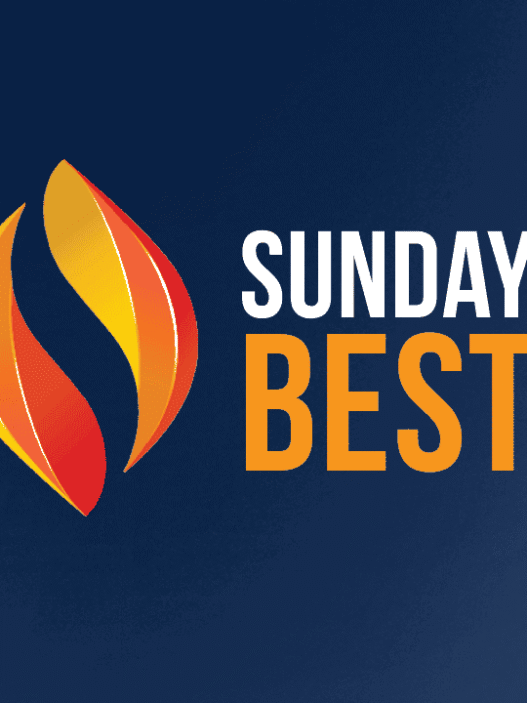Pacaso ads are everywhere. There's a strong chance you've seen them.
Below is a balanced, fact-checked look at Pacaso and its open “anyone can invest” stock sale.
I'm not paid by Pacaso, and I don't have an affiliate arrangement; this is strictly an evaluation to help you decide whether buying shares fits your risk tolerance.
Pacaso: What the Company Does (Is it a Timeshare?)
Pacaso is a tech-enabled marketplace for “co-ownership” of luxury second homes. Instead of buying 100% of a vacation home, buyers purchase ⅛ to ½ interests in an LLC that owns a specific property. Pacaso sources and designs the homes, manages scheduling, operations, and resale, and earns both one-time and recurring fees across that lifecycle.
My first thought was, Oh, so it's a timeshare. But… It's not.
An argument could be made that it is what timeshares originally were, or what people think they are, or perhaps even what they should be.
But with Pacaso, owners ACTUALLY OWN a fraction of a real property. They're on the mortgage and everything. It's just a way to split costs of multi-million dollars homes through multiple owners. I think it's a great idea, since a vacation home isn't used all year, which means only a few other people will use the home as opposed to hundreds with a timeshare.
Bottom line: With a timeshare, you own a time slot or points. With Pacaso, you own a house.
The company was founded in 2020 by Austin Allison (founder of dotloop, which was sold to Zillow) and Spencer Rascoff (former Zillow CEO). It operates in 40+ destinations in the U.S. and abroad.
“A Reg A+ Stock Sale With a Low Minimum”
Pacaso is raising money through a Tier 2 Regulation A (“Reg A+”) offering—open to accredited and non-accredited U.S. investors—with a minimum investment of $1,000.50 and a current offering price shown as $2.90 per share on its invest site. The company's page prominently features a countdown timer (i.e., a closing “window”) that looks like this:
After September 19 at 3:00am (EST), these specific shares will no longer be available to the general public.
Pacaso's SEC filings confirm the Reg A structure and emphasize that there is no public market for the shares today. Reg A qualification lets Pacaso sell shares, not list them. Liquidity depends on a future event (IPO or acquisition) that may occur… or could never occur.
They Have a Nasdaq Ticker – Are They Going Public?”
Pacaso reserved the Nasdaq ticker “PCSO”.
That's a procedural step companies can take while evaluating capital-market options; it DOES NOT obligate Nasdaq to list the company. It doesn't obligate Pacaso to go public. Nor does it mean an IPO is imminent.
Pacaso and its invest site state this explicitly.
Why You're Seeing Pacaso Everywhere Right Now
Because the Reg A window is active and time-boxed, Pacaso is running heavy paid distribution to build awareness.
Recent placements about “investing for $2.90/share” and “deadline to invest” appear in business media and newsletters—these are sponsored/investment-promotion pieces, not traditional news. (Examples include Entrepreneur's advertorial-style article and social/video ads via publisher channels.)
Entrepreneur is one on many popular news outlets that have featured a sponsored article on Pacaso. The ad has been all over newsletters, including the popular Snacks newsletter from Robinhood:
Traction and Recent Financial Markers
Pacaso highlights steady operating progress in its press releases and on its investor page:
- 2024 performance: $164.5M in gross real estate transacted (GRT) and 18% growth in adjusted gross profit; EBITDA loss improved 24% vs. prior year.
- 1H 2025: Adjusted gross profit (ex-whole home sales) $12.6M (15.2% margin), adjusted EBITDA loss of $(9.3)M (10% YoY improvement). Cumulative equity raised since inception $280M+, including $45M+ from 10,000+ investors via Reg A (as of Sept. 10, 2025).
- Scale/usage: $1B+ in cumulative real-estate transactions and 100,000+ owner nights (company metrics shown on its invest site).
Private-market intel services also track Pacaso's fundraising history and investor base, but exact revenue/valuation estimates vary across databases.
Pacaso's Business Model: Where the Money Comes From
Pacaso earns revenue primarily through:
- Initial real-estate/transaction fees
- Ongoing property management fees
- Resale commissions
Plus financing and related services—an “initial + recurring” model tied to the homes on its platform.
Market Context and Controversies
Like any large business, it's not without complications.
Demand Tailwinds
Co-ownership targets an enormous second-home market (Pacaso cites a $1.3T U.S. opportunity and expanding European demand).
Post-pandemic flexibility and cross-border interest have boosted the category.
Local Pushback
Several communities (e.g., in California wine country) have challenged fractional models over neighborhood impact, short-term-rental rules, and housing supply.
Pacaso has faced lawsuits and policy fights, while also negotiating guardrails with some municipalities.
This regulatory friction is a real operating risk.
Key Investor Questions (And How to Think About Them)
1. Is this really “anyone can invest” in Pacaso?
Yes—Reg A allows non-accredited investors to participate. But remember: these are private shares with no current secondary market and uncertain liquidity timing. Treat this as venture-style risk capital.
2. What could make Pacaso shares go up?
A successful IPO or strategic acquisition could unlock liquidity. Continued growth in transactions, margins, and international expansion would help the narrative. Pacaso's reservation of PCSO keeps the option open, but the timeline is unknown.
3. What could go wrong?
- No liquidity event for years (or ever), leaving investors effectively locked in.
- Regulatory risk from cities limiting fractional models or tightening second-home rules.
- Macro risk: higher rates or a luxury-housing slowdown could compress demand and inventory turnover.
- Execution risk: sustaining home quality, owner satisfaction, swap features, and cross-border operations at scale.
- Ongoing losses: Pacaso is still unprofitable on an adjusted EBITDA basis, though losses have narrowed, and this is normal for a newer company.
4. Valuation & dilution
Reg A rounds can change price within limits without re-qualification; future raises could dilute holders. Always read the offering circular before investing.
Bottom Line (Unbiased View)
Pacaso has built a recognizable consumer brand and a defensible operating stack in a big category.
The model exhibits signs of maturation, including recurring revenue growth, improved unit economics, international expansion, and leadership with prior experience at public companies.
Pacaso Strengths
- Category leadership
- Scaled ops
- Improving margins
- Growing Brand
- A clear “pain killer” for buyers who want turn-key second-home access
Pacaso Risks
- Policy backlash
- Housing-cycle exposure
- Ongoing losses
- Most important for Reg A investors: Liquidity Uncertainty.
If you participate, treat it like a long-duration, high-risk private investment, not a near-term trade.
The marketing blitz and countdown clocks are about filling the Reg A book, not a guarantee of a quick IPO.
Expect not to touch this investment for a minimum of five years, and only invest money you can afford to lose without compromising your financial situation.
A Personal Note: Am I Buying Pacaso?
Everything above? I wrote it. And I'm not a Pacaso employee or promoter.
I've been watching the space closely, and I wanted to collect the facts in one place so you can decide for yourself.
Since I first saw it advertised, I was interested. The low initial investment was both attractive (not as much at risk) and worrisome (desperate for investors, maybe?)
That being said, I did buy the minimum investment of $1,000.50 and plan to hold it indefinitely if needed.
Whether or not you should invest is up to… well, you already know the answer to that.
The post A No-BS, Non-Sponsored Look at Investing in Pacaso appeared first on MoneyMiniBlog.


















